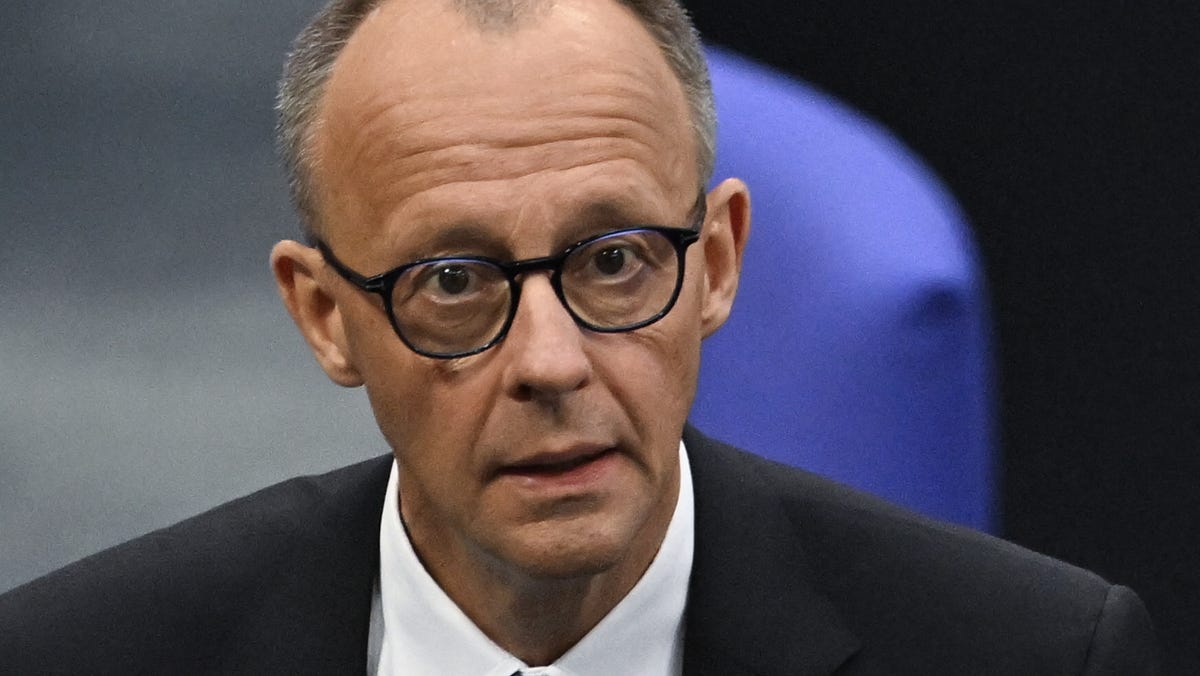BERLIN, May 6 (Reuters) – German conservative leader Friedrich Merz failed to secure enough parliamentary votes to become chancellor on Tuesday in a major blow that threw politics in Europe’s largest economy once more into disarray.
Merz, 69, who led his CDU/CSU conservatives to a federal election victory in February and signed a coalition deal with the centre-left Social Democrats (SPD), won just 310 votes in the secret ballot in the lower house, the Bundestag, six short of an absolute majority. It meant at least 18 coalition MPs had failed to back him.
While not a fatal setback, Merz’s failure to win parliamentary backing at the first time of asking is a first for post-war Germany and an embarrassment for a man who has promised to revive economic growth at a time of global turbulence.
Most immediately, it threw into doubt the trips Merz had planned to France and Poland on Wednesday as the new chancellor.
Nine lawmakers abstained while 307 voted against Merz, said Bundestag President Julia Kloeckner.
Merz, visibly shocked, rose to confer with colleagues. Party insiders had on Monday expressed confidence that he would secure a majority.
Kloeckner adjourned the parliamentary session to allow the parties to decide how to proceed. There was unlikely to be another vote on Tuesday.
“This is a significant negative. He (Merz) is still likely to be elected but this shows that the coalition is not united, which could weaken his ability to pursue policies,” said Holger Schmieding, Chief Economist at Berenberg in London.
German shares extended their fall from near record levels and bond yields dipped. After the election in February, Merz had secured framework legislation for a huge borrowing programme focused on defence and infrastructure. Some of his own supporters were unhappy with the loosening of borrowing limits, however.
FOURTEEN DAYS TO ELECT CHANCELLOR
“… the government still needs to convince its own supporters that it will be able to deliver,” said Carsten Brzeski, Global Head of Macro Research and Chief Eurozone Economist ING, Chief Economist ING Germany.
“The failed vote is clearly a sign that not everyone in the CDU agrees with the fiscal U-turn.”
The Bundestag now has 14 days to elect Merz or another chancellor.
“The fact that Merz has now failed in the first round of voting sends a devastating signal to society and the economy: the ranks are not united,” said Jens Suedekum from the Duesseldorf Institute for Competition Economics (DICE).
Merz’s conservatives won February’s election with 28.5% of the vote, leaving them in need of at least one partner to form a majority government.
On Monday, they signed a coalition deal with the SPD, who won just 16.4%, vowing to reform Germany.
But both parties have lost support since their already dismal performances in February, with the far-right Alternative for Germany, which came in second, topping some recent surveys.
“Merz failing to get elected in the first round casts a dark shadow over the future of the coalition,” said Philipp Koeker, political scientist at the University of Hanover.
“Although I expect that he will be elected in the second round, the relationship between the parties will be severely damaged because of this and (it will) exacerbate the conflicts that are already bubbling beneath the surface.”
Germany has not had a majority government since the collapse of Olaf Scholz’s SPD-led three-way coalition last November, and is already facing an array of headwinds.
A global trade war sparked by U.S. President Donald Trump’s sweeping import tariffs is threatening to cause a third year of recession in an economy that is having to rethink its business model.
Meanwhile, Trump has weakened the U.S. commitment to the NATO defence alliance, prompting Europe to rush to boost defence spending to be able to take more of the burden.
(Reporting by Berlin newsroom, writing by Sarah Marsh and Friederike Heine; editing by Matthias Williams)
